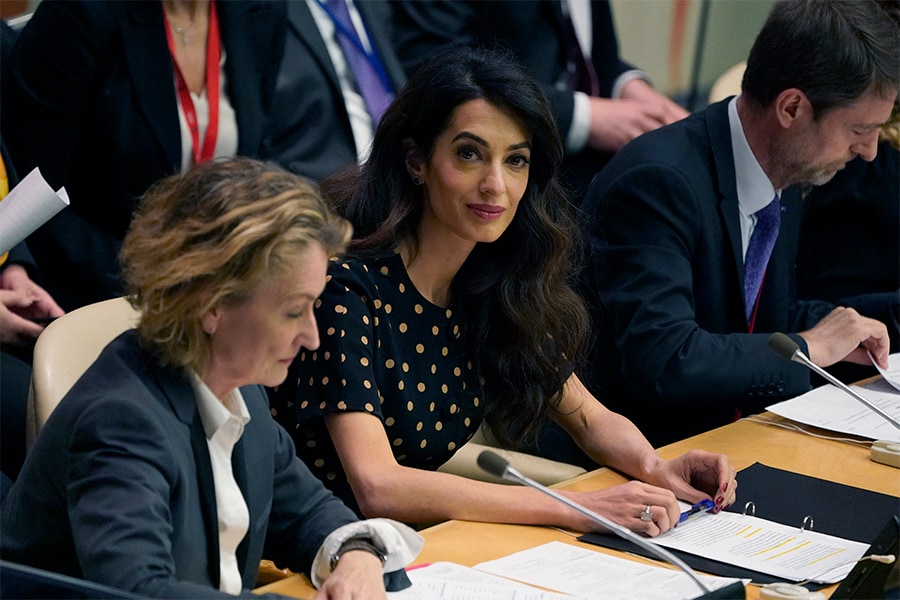
UNSC to examine possible war crimes by Russia
Despite the quick and collective effort to gather evidence in Ukraine, experts say that the formation of war crimes trials and convictions, if they ever occur, could most likely take years
 Amal Clooney of the Clooney Foundation for Justice attends the United Nations 'Arria-formula' meeting, an informal gathering of Security Council members, on April 27, 2022, in New york to discuss how the UN can support and coordinate accountability efforts for serious crimes in Ukraine.
Image: Timothy A. Clary / AFP
Amal Clooney of the Clooney Foundation for Justice attends the United Nations 'Arria-formula' meeting, an informal gathering of Security Council members, on April 27, 2022, in New york to discuss how the UN can support and coordinate accountability efforts for serious crimes in Ukraine.
Image: Timothy A. Clary / AFP
The U.N. Security Council on Wednesday held an informal meeting on the efforts underway in Ukraine to document reports of war crimes and crimes against humanity committed by Russian forces. The evidence gathering is a crucial first step toward prosecution delivering accountability and justice, diplomats said.
A prominent cast of experts on human rights and war crimes — including the prosecutor for the International Criminal Court, lawyer Amal Clooney, the U.N.’s top human rights chief and the head of Human Rights Watch — attended the meeting organized by Albania and France at the United Nations. Ukraine’s prosecutor general joined via a video screen from Kyiv, the Ukrainian capital.
Karim Khan, the ICC’s chief prosecutor, said the conflict in Ukraine was a singular moment for justice and accountability. Khan said that 43 countries had referred the situation in Ukraine to the ICC — the largest number ever — and that the court had joined for the first time an effort by Ukraine, Poland and Lithuania to conduct joint investigations.
“This is a time when we need to mobilize the law and send it into battle,” Khan told the U.N. meeting. “Not on the side of Ukraine against the Russian Federation, or on the side of the Russian Federation against Ukraine, but on the side of humanity.”
Khan said the court was independent and impartial and called on Russia to cooperate with it. But he said his many attempts to communicate with Russia have gone unanswered.
©2019 New York Times News Service







